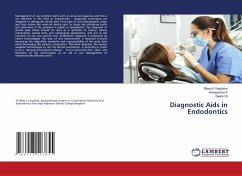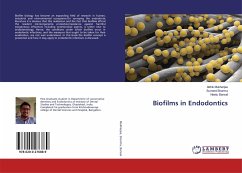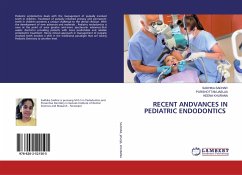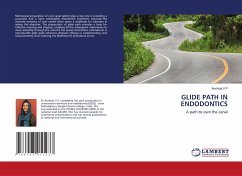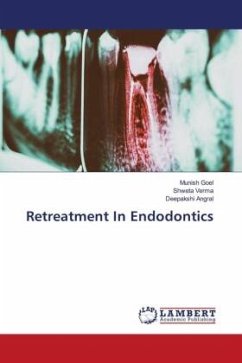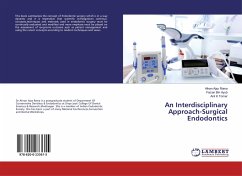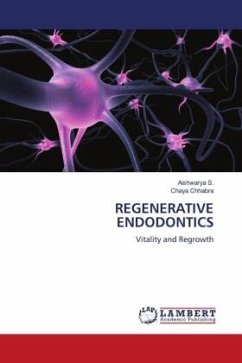
REGENERATIVE ENDODONTICS
Vitality and Regrowth
Versandkostenfrei!
Versandfertig in 6-10 Tagen
40,99 €
inkl. MwSt.

PAYBACK Punkte
20 °P sammeln!
An immature tooth with early irreversible pulp involvement presents with thin divergent or parallel dentinal walls. This situation creates clinical challenges in disinfection, and as a result, affects the long-term outcome of the treatment. Traditionally, calcium hydroxide has been used as the intra-canal medicament in apexification procedures. However, because of its high pH it will cause necrosis of tissues that can potentially differentiate into new pulp. Revascularization of a pulp-like tissue for dentine deposition will allow further development of the root and dentinal structure with a b...
An immature tooth with early irreversible pulp involvement presents with thin divergent or parallel dentinal walls. This situation creates clinical challenges in disinfection, and as a result, affects the long-term outcome of the treatment. Traditionally, calcium hydroxide has been used as the intra-canal medicament in apexification procedures. However, because of its high pH it will cause necrosis of tissues that can potentially differentiate into new pulp. Revascularization of a pulp-like tissue for dentine deposition will allow further development of the root and dentinal structure with a better long-term prognosis. The regenerative potential of dental pulp, particularly in immature teeth, has been considered extremely limited. However, improved understanding of pulpal inflammation and repair and improved dental materials and technologies make vital pulp therapy a viable alternative to root canal treatment. Revascularization could be effective for managing immature permanent teeth with apical periodontitis. This book explores our knowledge in this regard and the future potential of saving or even regenerating the pulp as a routine dental procedure.



